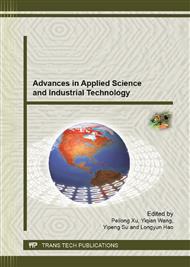p.541
p.545
p.549
p.553
p.557
p.561
p.565
p.570
p.574
Design of Temperature Controlling System for CCD Based on DSP
Abstract:
CCD dark current is an important index of CCD properties effect, which emerges temperature drift phenomenon with the increasing temperatures. Because of the increasing temperature, CCD noise will increase exponentially. A temperature control device is designed based on DSP and fuzzy PID theory, which is composed of core control chip DSP320F28335, temperature control chip Thermal Electronic Cooler and temperature collecting chip DS18B20. Experiments show that the system can collect temperature timely and adjust temperature effectively. At the same time the system reach predetermined temperature in 2 minutes and error range is about 0.1°C.
Info:
Periodical:
Pages:
557-560
Citation:
Online since:
September 2013
Authors:
Price:
Сopyright:
© 2013 Trans Tech Publications Ltd. All Rights Reserved
Share:
Citation:


